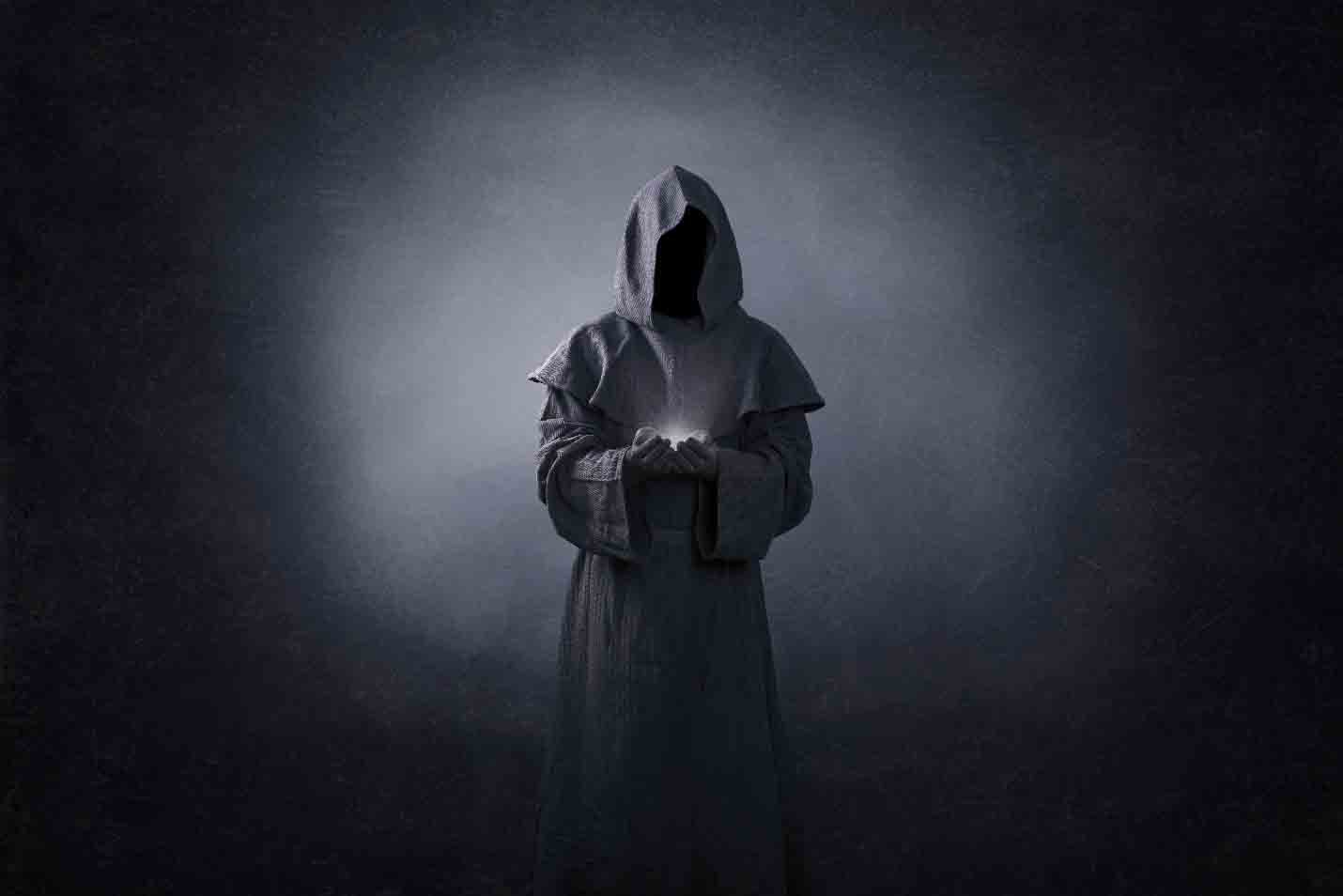Alright, listen up, folks. The topic of antichrist is one of those things that has sparked debates, fears, and even fascination for centuries. Whether you're religious, spiritual, or just plain curious, the concept of the antichrist is deeply embedded in our collective consciousness. But here's the deal—what exactly is the antichrist? Is it a person, a symbol, or something entirely different? Let's dive into this and unravel the mystery together, shall we?
You’ve probably heard whispers about the antichrist in movies, books, or even late-night conversations with friends. It’s often portrayed as the ultimate villain in religious prophecies, a figure destined to deceive the world before the end times. But beyond the Hollywood dramatization, there’s a whole lot more to explore. So, buckle up because we’re about to take a deep dive into the history, theology, and modern-day interpretations of the antichrist.
One thing’s for sure: the antichrist isn’t just a religious concept anymore. It’s a cultural phenomenon that has influenced everything from art to politics. Whether you believe in it or not, understanding the antichrist can give you a fascinating glimpse into the human psyche and our enduring fascination with the unknown. Ready to get started? Let’s go.
Read also:Wasmo Somali Channel 2024 Your Ultimate Guide To The Hottest Somali Entertainment
What Exactly Is the Antichrist?
Alright, let’s break it down. The term antichrist comes from the Bible, specifically the New Testament. It’s mentioned in the epistles of John, where it’s described as someone or something that opposes Christ. But here’s the twist—it’s not as straightforward as it seems. In fact, the Bible doesn’t explicitly describe the antichrist as a single person. Instead, it talks about many antichrists already present in the world.
Now, if you’re scratching your head, you’re not alone. Over the years, different religious traditions and scholars have interpreted the antichrist in various ways. Some see it as a literal person, while others view it as a symbolic representation of evil or opposition to God. The truth is, the concept of the antichrist has evolved over time, shaped by historical events, cultural shifts, and even political agendas.
A Brief History of Antichrist Beliefs
Let’s take a little trip back in time. The idea of the antichrist has been around for centuries, and its interpretation has changed depending on the era. In early Christianity, the antichrist was often associated with Roman emperors who claimed divine authority. Later, during the Middle Ages, the Catholic Church labeled certain heretics and even rival religious leaders as antichrists. And in more recent times, the antichrist has been linked to political figures, world leaders, and even technology.
But why does this concept keep coming back? Well, it’s all about fear and uncertainty. Throughout history, people have looked for explanations for the chaos and suffering they’ve experienced. The antichrist becomes a convenient scapegoat, a way to make sense of the world’s madness. It’s like a boogeyman, but with a biblical twist.
Key Historical Figures Linked to Antichrist
Over the years, several historical figures have been labeled as potential antichrists. Here are a few notable examples:
- Nero: The infamous Roman emperor was accused of persecuting Christians and even claimed to be a god. Some early Christians believed he was the antichrist.
- Martin Luther: During the Protestant Reformation, the Catholic Church branded Luther as an antichrist because of his opposition to papal authority.
- Adolf Hitler: Many people in the 20th century saw Hitler as the embodiment of evil and speculated that he might be the antichrist.
Of course, these claims are highly debated, but they show how the concept of the antichrist has been used to vilify those seen as enemies of religion or morality.
Read also:Mastering Masahub The Ultimate Guide To Understanding And Leveraging Its Potential
Antichrist in Christian Theology
Now, let’s zoom in on the religious side of things. In Christianity, the antichrist is often associated with the end times, a period of great tribulation and suffering before the return of Christ. According to the Book of Revelation, the antichrist will deceive the world with false promises and miraculous signs. But here’s the kicker—the Bible doesn’t provide a detailed description of what the antichrist will look like or how they’ll act. That’s where things get interesting.
Different denominations have their own interpretations of the antichrist. For example, some Protestant traditions believe the antichrist will be a single world leader, while Catholic teachings focus more on the idea of an institutional antichrist, such as a corrupt church or government. The diversity of beliefs reflects the complexity of the topic and the varying perspectives within Christianity.
Common Characteristics of Antichrist in Theology
While the Bible doesn’t spell everything out, theologians have identified some common traits associated with the antichrist:
- Deception: The antichrist is believed to be a master manipulator, capable of convincing people to turn away from God.
- Power: Many believe the antichrist will have immense political, economic, or religious influence.
- Opposition to Christ: At its core, the antichrist represents everything that opposes the teachings and values of Jesus Christ.
These characteristics have fueled countless debates and speculations about who or what the antichrist might be.
Antichrist in Popular Culture
Let’s face it—the antichrist has had a pretty big role in pop culture. From books and movies to music and art, the concept has inspired countless creative works. Think about movies like "The Omen" or books like "Left Behind." These stories often depict the antichrist as a charismatic leader who rises to power through deception and manipulation.
But here’s the thing—pop culture doesn’t always get it right. Many of these portrayals are exaggerated or sensationalized, which can lead to misunderstandings about the true nature of the antichrist. That’s why it’s important to separate fact from fiction when exploring this topic.
Examples of Antichrist in Movies and Books
Here are a few examples of how the antichrist has been portrayed in popular culture:
- The Omen (1976): This classic horror film follows the story of a young boy who is revealed to be the antichrist.
- Left Behind Series: A series of novels that depict the end times and the rise of the antichrist.
- The Da Vinci Code: While not explicitly about the antichrist, this novel explores themes of religious conspiracy and deception.
These works highlight the enduring fascination with the antichrist and its potential impact on the world.
Modern-Day Speculation About Antichrist
Fast forward to today, and the speculation about the antichrist is still alive and well. In fact, it seems to be more relevant than ever, given the rapid changes in technology, politics, and global events. Some people believe the antichrist could be a world leader, a technological advancement, or even an AI system. Others think it might be a symbolic representation of the growing secularism and moral decay in society.
Whatever the case may be, one thing’s for sure—the concept of the antichrist continues to capture our imagination and spark debate. In a world full of uncertainty, it’s no wonder people are looking for answers—and the antichrist offers a convenient narrative to explain the chaos around us.
Technology and the Antichrist
One of the more intriguing theories in recent years is the idea that the antichrist could be linked to technology. With the rise of AI, biometric identification, and global surveillance systems, some people believe we’re moving closer to a world where the antichrist could thrive. The Bible even mentions something called the "mark of the beast," which some interpret as a futuristic form of identification or control.
While these ideas might sound far-fetched, they reflect our growing concerns about the impact of technology on society. Whether or not the antichrist is involved, it’s clear that technology is reshaping our world in ways we’re only beginning to understand.
How to Identify the Antichrist
So, how do you spot the antichrist? Well, that’s the million-dollar question. The Bible doesn’t provide a clear checklist, but there are a few signs to watch out for. For starters, the antichrist is likely to be someone or something that promotes false teachings, undermines religious values, and seeks to gain power through deception.
But here’s the tricky part—many of these traits can also be found in ordinary people or even well-meaning leaders. That’s why it’s important to approach the topic with discernment and critical thinking. Don’t jump to conclusions based on hearsay or sensationalized claims. Instead, rely on trusted sources and use your own judgment.
Warning Signs to Watch For
Here are a few warning signs that might indicate the presence of the antichrist:
- False promises of peace and prosperity.
- Attempts to suppress religious freedom or promote a one-world religion.
- Excessive focus on technology and control over people’s lives.
Again, these signs aren’t definitive proof, but they can serve as a starting point for further investigation.
Antichrist and the End Times
Finally, let’s talk about the connection between the antichrist and the end times. In Christian eschatology, the antichrist is seen as a key player in the final events leading up to the return of Christ. The Bible describes a period of great tribulation, during which the antichrist will deceive the world and lead people away from God. But here’s the good news—ultimately, the antichrist will be defeated, and God’s kingdom will prevail.
Of course, this is all based on religious beliefs, and not everyone subscribes to these ideas. But for those who do, the concept of the antichrist serves as a reminder to stay vigilant and faithful in the face of adversity.
Conclusion: What Does It All Mean?
So, there you have it—a deep dive into the world of the antichrist. Whether you believe in it or not, the concept offers a fascinating glimpse into human history, religion, and culture. From ancient prophecies to modern-day speculation, the antichrist continues to captivate our imagination and spark debate.
As we’ve explored, the antichrist isn’t just a religious concept—it’s a cultural phenomenon that reflects our fears, hopes, and uncertainties. Whether it’s a person, a symbol, or something entirely different, the antichrist reminds us to stay grounded in truth and seek wisdom in a world full of distractions.
Now, here’s where you come in. What do you think about the antichrist? Have you ever encountered this concept in your own life or studies? Share your thoughts in the comments below, and don’t forget to check out our other articles for more insights into the mysteries of the world.
Table of Contents


